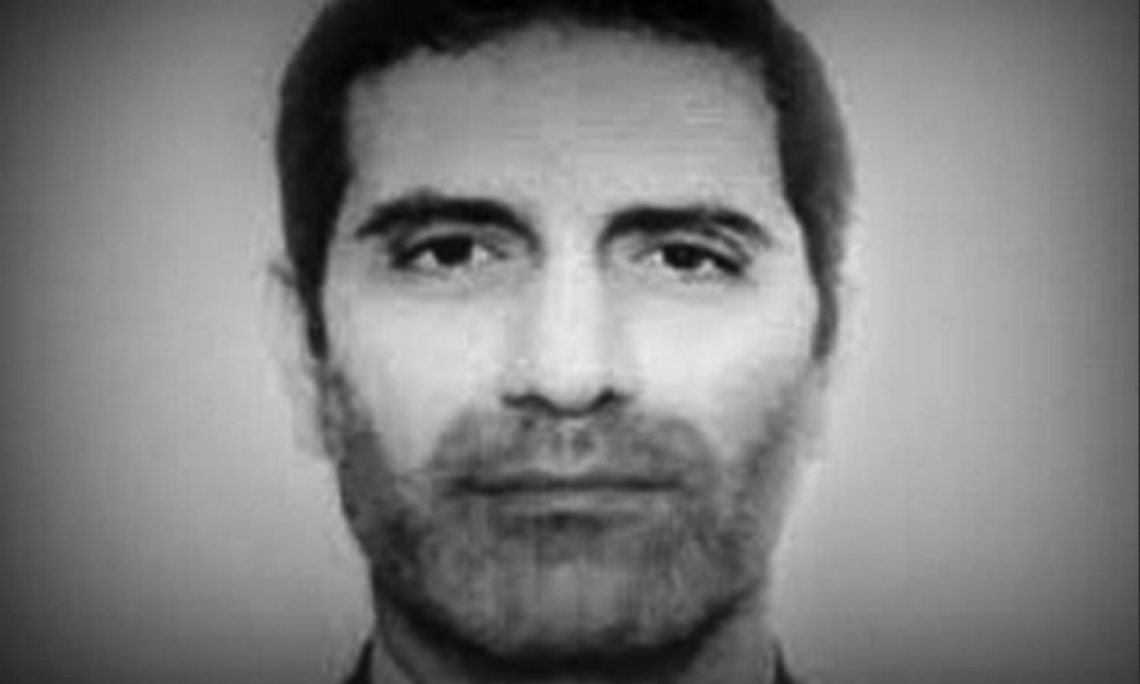Time for Europe to listen to the Iranian people
https://arab.news/z5pnd

Over the last four decades, European governments have implemented various policies toward Iran, but one thing has been made clear in this period: Appeasement of the ruling clergy only helps advance their hard-line agenda.
In 1992, the European powers experimented with a precarious policy toward Iran. They wagered that negotiating with the fundamentalist rulers of Tehran may end up changing their egregious behavior, especially at home. The regime’s human rights record was so appalling that Europe tried to rationalize its dicey rapprochement by pretending to have a “critical dialogue.” At the end of the fatal experiment, however, not only had the regime not modified its behavior, but it had ramped up its human rights violations and conducted bold terrorist attacks on European soil.
The critical dialogue policy was suspended in 1997 after the German judiciary indicted senior Iranian regime officials over terrorist killings in that country. Even the most basic realpolitik lesson learned should have been that appeasement emboldens the regime and makes the situation worse.
Following that logical line of thought, dialogue should have been replaced by holding the regime accountable for its past actions in order to prevent future provocations. Shockingly, however, the European capitals doubled down on a more conciliatory approach, engaging Tehran in even broader negotiations beginning in the early 2000s, ostensibly tackling Iran’s clandestine nuclear program.
A few short years after the conclusion of that attempt in 2015, the Belgian judiciary is on track to repeat what German courts found 23 years ago, but on a much larger scale. Next month, regime diplomat Assadollah Assadi will be put on trial in a breathtaking case that sees him accused of direct involvement in a terrorist plot in France.
Prosecutors say that, in June 2018, Assadi delivered 500 grams of the powerful explosive triacetone triperoxide to his accomplices with the aim of bombing an Iranian opposition rally in Paris. Had the plot not been discovered at the very last minute, the terrorist act could have left hundreds dead, including international dignitaries and many European parliamentarians.
Those parliamentarians and many of their colleagues are now furious that the EU is continuing with its failed policies on Iran, even as the regime’s terrorist plots become more daring and the human rights situation worsens by the day. More than 40 European Parliament members, as well as national MPs in Poland and Germany, last week addressed the issue in Brussels and Berlin, respectively.
They vociferously condemned the regime’s terrorism and ongoing crimes against humanity. Insisting on action rather than words, they also urged their governments to live up to Europe’s political and moral obligations by adopting a firm policy toward the regime, including shutting down its embassies.
The keynote speaker and one of the main targets of the regime’s terrorism over the past two years, including a plot in Albania and the one in France, was Maryam Rajavi, the president-elect of the National Council of Resistance of Iran (NCRI). She echoed the parliamentarians’ sentiments and insisted there should be no doubt that the regime is inherently incapable of moderating its behavior, and that it should be overthrown by the Iranian people. This further highlighted the legitimacy and international recognition of the opposition as a viable democratic alternative. The NCRI’s message has had a meaningful impact both inside and outside Iran, forcing regime officials to warn about the growth of its reach and the drawing of the younger generation to its democratic 10-point plan.
Iran’s ongoing crimes against humanity have been swept under carpet by the EU for far too long. They are simply ignoring the massacre of 30,000 political prisoners in the summer of 1988, the executioners of which continue to hold senior positions in the Iranian government. And, when Tehran last year killed 1,500 protesters and arrested and tortured 12,000 others, Europe simply watched from afar, contenting itself with occasional statements of condemnation.
More importantly, after several failed and costly rounds of dangerous experimentation with policies of appeasement and negotiations, the Europeans continue to make the same mistakes. As the famous quote reminds us, “Insanity is doing the same thing over and over again and expecting different results.” Individual European governments and the EU as a whole would do well to listen to the voices of the Iranian people.
Iran’s ongoing crimes against humanity have been swept under carpet by the EU for far too long.
Dr. Majid Rafizadeh
To stop Tehran’s provocations, especially its terrorism, Europe must hold the regime accountable for its foreign adventurism and its reprehensible repression of dissent and peaceful protests at home.
What should a firm policy include as its core measures? The EU should adopt legislation to expel Iranian “diplomats” and intelligence agents like Assadi, who may be plotting further terrorist attacks. They should consider closing down Iranian embassies. And, most importantly, they should designate the Islamic Revolutionary Guard Corps and its proxies as terrorist organizations.
When it comes to human rights, the EU should seek to send an independent international mission to investigate Iran’s ongoing crimes against humanity and visit the country’s prisons. It must tell Tehran that it should stop its executions before any further diplomatic engagement.
For once, Europe should adopt a sane policy on Iran: A policy that better detects Tehran’s threat while hearing the legitimate calls for democracy of the Iranian people. Otherwise, European insanity will continue to breed Iranian terrorism.
- Dr. Majid Rafizadeh is a Harvard-educated Iranian-American political scientist. Twitter: @Dr_Rafizadeh









































